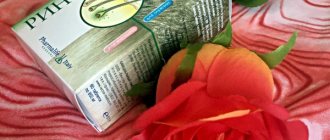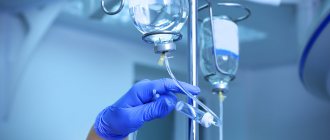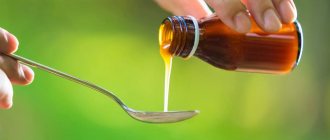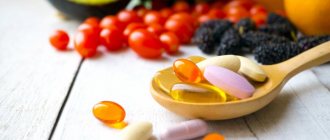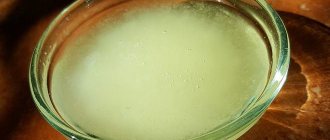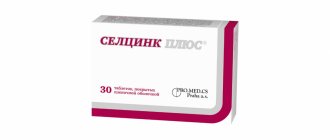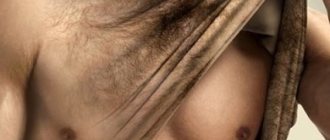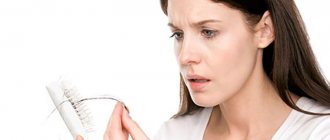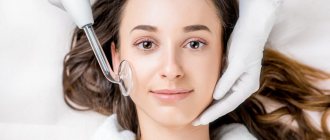In order for hair to grow strong, healthy and beautiful, it is necessary to provide it with sufficient nutrients. The complex of required elements is quite extensive, but their role is not the same. One of the most important among them is biotin, also known as vitamin B7. This is a water-soluble substance that is synthesized in a certain volume in the human body. However, the amount of biotin our body can create is often not enough. Its deficiency can be compensated both by including special foods in the diet and by using complex supplements.
What are the benefits of biotin for hair?
This vitamin is involved in many metabolic processes occurring in the body:
- helps in the synthesis and absorption of certain amino acids;
- promotes the formation of fatty acids, as well as glucose - a natural source of energy for the whole body, including hair follicles;
- takes part in the metabolism of proteins, some organic acids, vitamin B12;
- present in the formation of red blood cells necessary for the effective supply of oxygen to the body
Biotin is important for hair growth and strengthening. It acts as a source of sulfur necessary for the synthesis of collagen molecules in the body - and this, in turn, stimulates the growth of new hairs and protects them from loss.
In addition, sufficient amounts of biotin help:
- normalize the supply of oxygen to the hair follicles and scalp;
- strengthen the hair structure, make it elastic;
- prevent premature aging of hair and loss of color;
- normalize the function of the sebaceous glands in the skin;
- prevent the occurrence of seborrhea.
The value of this compound is that it has a complex effect on the body and especially on the condition of hair, skin and nails. This is one of the most important substances without which you can get lush, beautiful hair.
Biotin for hair: what is this substance and how is it useful Biotin for hair: what is this substance and how is it useful
Deficiency symptoms[edit | edit code]
In most animals, to reproduce biotin deficiency, it is necessary to either destroy the gut microflora (which appears to synthesize biotin), feed them raw egg whites, or administer biotin antagonists. Biotin deficiency in humans is manifested by dermatitis, atrophic glossitis, hyperesthesia, myalgia, loss of appetite, mild anemia and ECG changes. Biotin deficiency has been observed in isolated cases of long-term consumption of raw eggs. Congenital defects of biotin-dependent enzymes have been described that can be compensated for by the administration of large doses of biotin (Baumgartner et al., 1984).
Symptoms of biotin deficiency have been observed in children and adults with chronic inflammatory bowel disease who received long-term parenteral nutrition without biotin supplementation. In such cases, an additional factor was probably insufficient biotin synthesis by the intestinal microflora. Vitamin deficiency was manifested by severe erythroderma and alopecia, reminiscent of the symptoms of zinc deficiency, but disappearing when taking even small doses of biotin. Biochemical evidence of biotin deficiency has been reported in few studies, but in one case, biotin reduced increased urinary excretion of β-hydroxyisovaleric acid, indicating impairment of the function of biotin-dependent methylcrotonyl-CoA carboxylase (Gillis et al., 1982).
Signs of biotin deficiency in the body
Experts recommend a daily dosage of vitamin B7 in the amount of 30 mcg - this amount should be sufficient to maintain the normal functioning of the body. However, those who want to grow a rich hairstyle or a thick beard require much more biotin. You can tell that your body is not getting enough of it by the following symptoms:
- active hair loss;
- hair is too dry;
- split ends;
- loss of natural shine;
- weakening of hair color;
- peeling of the scalp.
Biotin for hair: what is this substance and how is it useful Biotin for hair: what is this substance and how is it useful
Biotin for hair: what is this substance and how is it useful Biotin for hair: what is this substance and how is it useful
In addition, it is recommended to take biotin for a number of diseases:
- psoriasis;
- dermatitis of various nature;
- seborrhea;
- dysfunction of the sebaceous glands.
A special feature of vitamin B7 is its rapid and complete absorption - in other words, the body cannot accumulate it “in reserve.” A decrease in the level of vitamin B7 in the body can be caused by a variety of reasons. These include:
- alcohol abuse;
- drinking a lot of coffee;
- inclusion of heat-treated fats in the diet;
- taking antibiotics and some other drugs;
- eating raw eggs;
- excessive use of diets;
- problems with intestinal microflora.
The presence of any of these factors is already a reason to increase the intake of vitamin B7.
Historical background[edit | edit code]
Source:
Clinical Pharmacology by Goodman and Gilman, Volume 4
.
Editor
: Professor A.G.
Gilman Ed.
: Practice, 2006.
In 1916, Bateman discovered that rats fed egg whites as their only source of protein developed a syndrome characterized by neuromuscular disorders, severe dermatitis, and alopecia. This syndrome did not develop if rats were fed boiled egg whites or yeast, liver, or extracts from them were added to the food. In 1936, Kegl and Tennis isolated from egg yolk a factor necessary for the growth of yeast fungi in crystalline form, which they called biotin. Biotin turned out to be the very substance that protected rats from the toxic effects of egg white (Gyorgy, 1940).
In 1942, Du Vigneault established the structural formula of biotin, and it was synthesized shortly thereafter.
At the same time, the nature of the biotin antagonist present in egg whites was actively studied. In 1940, Akin et al. It was first isolated and named avidin. Avidin is a glycoprotein that binds biotin with high affinity, thereby preventing its absorption.
How to Take Biotin Supplements Properly
In order for hair vitamins with biotin to be as beneficial as possible, you should follow certain recommendations for taking them. First of all, you need to adhere to the plan and dosages indicated in the instructions. In addition, it is advisable to consult a specialist who will help you choose the right dosage. It will depend on the following factors:
- Your age;
- your health status;
- do you have any chronic diseases;
- How bad is biotin deficiency in the body?
The average daily dosage of biotin for various hair problems is:
- 1000 mcg – to maintain healthy hair in winter, as well as to restore after chemical influences (coloring, highlighting);
- 5000 mcg – for increased dryness and brittleness of hair, as well as to increase the rate of hair growth;
- 10,000 mcg – when signs of baldness appear, in the initial stages of skin diseases.
Due to the rapid absorption of biotin and the impossibility of its accumulation in the body, a slight excess of the dose in most cases does not lead to any negative consequences. Excess vitamin B7 leaves the body with waste products.
In addition, you need to remember that there is no generally accepted scientific opinion about how much biotin the body needs. Therefore, in each case it is determined individually.
Biotin for hair: what is this substance and how is it useful Biotin for hair: what is this substance and how is it useful
Biotin for hair: what is this substance and how is it useful Biotin for hair: what is this substance and how is it useful
SUCTION AND EXCHANGE
After the compound enters the digestive tract, a large amount of vitamin H is concentrated in the human liver and kidneys, then supplied to all organs.
Vitamin B7, which comes from food and is bound to protein, is initially released under the influence of proteolytic enzymes, then absorbed by the intestines, deposited in the adrenal glands, kidneys, and liver. At the same time, biotin is partially bound by serum albumin. The level of vitamin in the blood remains virtually unchanged.
In healthy people, biotin excretion in urine is 11-183 micrograms per day (Oppel). In the event of the onset of B7 vitamin deficiency, the excretion of the compound in the urine is reduced to 3.6 - 7.3 micrograms. When more than 300 micrograms of the substance is introduced into the body, there is a significant increase in the concentration of the nutrient in urine, and after 6 hours 30–50% of biotin is excreted naturally. Under these conditions, the content of coenzyme R in feces remains virtually unchanged. Normally, the level of the substance is in the range of 322 - 393 micrograms per day.
In patients suffering from polio, the excretion of vitamin H increases 3 times.
In women, the content of the vitamin compound in milk in the first days after birth is insignificant, while on the 10th day its level increases to 0.38 micrograms per 100 milliliters. Subsequently, it reaches 0.9 – 11.2 micrograms. Thus, the average content of useful nutrients in human milk is twice as high as immediately after birth.
Does biotin have any contraindications?
Like any chemical, vitamin B7 has some restrictions on its intake:
- It is not recommended to take biotin-containing preparations simultaneously with pantothenic acid, since both of these substances are absorbed under competing conditions;
- Pregnant women should consult their doctor before taking biotin supplements;
- It is possible that allergic reactions to individual components of complex supplements may occur - therefore, you need to carefully study the composition of each drug.
In addition, side effects may occur if these medications are taken for too long. These include deterioration of hair condition, progression of skin diseases, rise in sugar levels, skin rashes, etc. To prevent such consequences, you should take biotin against hair loss and for hair growth, strictly following the instructions.
It is impossible to say which biotin-containing drug is the best. However, it is strongly recommended to give preference to products from well-known, reputable brands that pay sufficient attention to testing their products, controlling their quality and using pure raw materials.
You also need to remember that the beneficial effect of biotin on hair and skin may not appear immediately, which is due to individual specifics and the speed of metabolic processes. However, with the correct choice and use of the drug, the effect will certainly be achieved. You can understand what exactly to expect from biotin from user reviews and “before” and “after” photos.
DAILY REQUIREMENT
Physiological needs for biotin according to Methodological Recommendations MP 2.3.1.2432-08 on the norms of physiological needs for energy and nutrients for various groups of the population of the Russian Federation:
- There is no upper permissible consumption level.
- The physiological requirement for adults is 50 mcg/day (introduced for the first time).
- The physiological need for children is from 10 to 50 mcg/day (introduced for the first time).
Table 1. Recommended daily intake of biotin depending on age (mg):
| Age | Daily requirement for biotin, (mcg) | |
| Children from 1 year to 11 years | 1 — 3 | 10 |
| 3 — 7 | 15 | |
| 7 — 11 | 20 | |
| Men (boys, young men) | 11 — 14 | 25 |
| 14 — 18 | 50 | |
| > 18 | 50 | |
| Women (girls, girls) | 11 — 14 | 25 |
| 14 — 18 | 50 | |
| > 18 | 50 |
Cases in which the need for vitamin B7 increases by 20–50%:
- excessive physical activity, professional sports (swimming, football, basketball, wrestling, alpine skiing, gymnastics, figure skating, hockey, cycling, mountaineering, fencing, rowing, running);
- living in a cold climate, when the air temperature drops 35 degrees below zero;
- increased carbohydrate content in the daily menu;
- constant neuropsychic stress;
- alcohol abuse;
- dangerous burns;
- for diabetes;
- the presence of gastrointestinal diseases, which are accompanied by profuse diarrhea;
- work with chemicals (carbon disulfide, arsenic, mercury);
- long-term treatment with antibiotics.
Indications for use
Used externally or orally. It is included in various products for skin and hair, but this use is less effective than taking tablets. Prescribed for the following conditions:
- disturbances in blood glucose levels;
- long-term use of antibiotics;
- increased oily skin and hair;
- excessive hair loss;
- thinning of the nail plates;
- dry skin;
- loss of appetite;
- problems falling asleep;
- alcohol abuse.
Take these medications once or twice a day, during meals.
The video shows how vitamin is useful for humans:
BIOTIN benefits
Release forms
In its pure form, the vitamin is sold only as a dietary supplement - monocomponent or multicomponent. Found in shampoos and hair growth stimulating products. Complexes containing biotin are quite easy to find - they are named after their active components: “Biotin Forte” or “Doppelhertz Beauty Biotin”.
Natural springs
Vitamin B7 is partially produced in the small intestine. But its quantity does not always cover the body’s daily needs. Therefore, to maintain health, in addition to the substance formed, it is additionally required to enrich the diet with foods containing vitamin H, which help replenish the amount of biotin.
The table below shows the main foods that contain high amounts of B7. These products can be enriched in the diet to prevent hypovitaminosis.
| The product's name | H content in 100 g, µg |
| Beef liver | 41-100 |
| Brewer's yeast | 30-200 |
| Boiled chicken eggs | 20-25 |
| Corn | 21-25 |
| Oatmeal | 20-25 |
| White sea fish | 10-12 |
| red fish | 5-15 |
| Chicken | 10 |
| Legumes | 8-12 |
| Strawberry | 4-9 |
| Raspberries | 3-4 |
| Sunflower seeds | 2-8 |
The vitamin may be destroyed during heat treatment or contained in smaller quantities, depending on the quality and type of food. Therefore, the table shows ranges of values.

